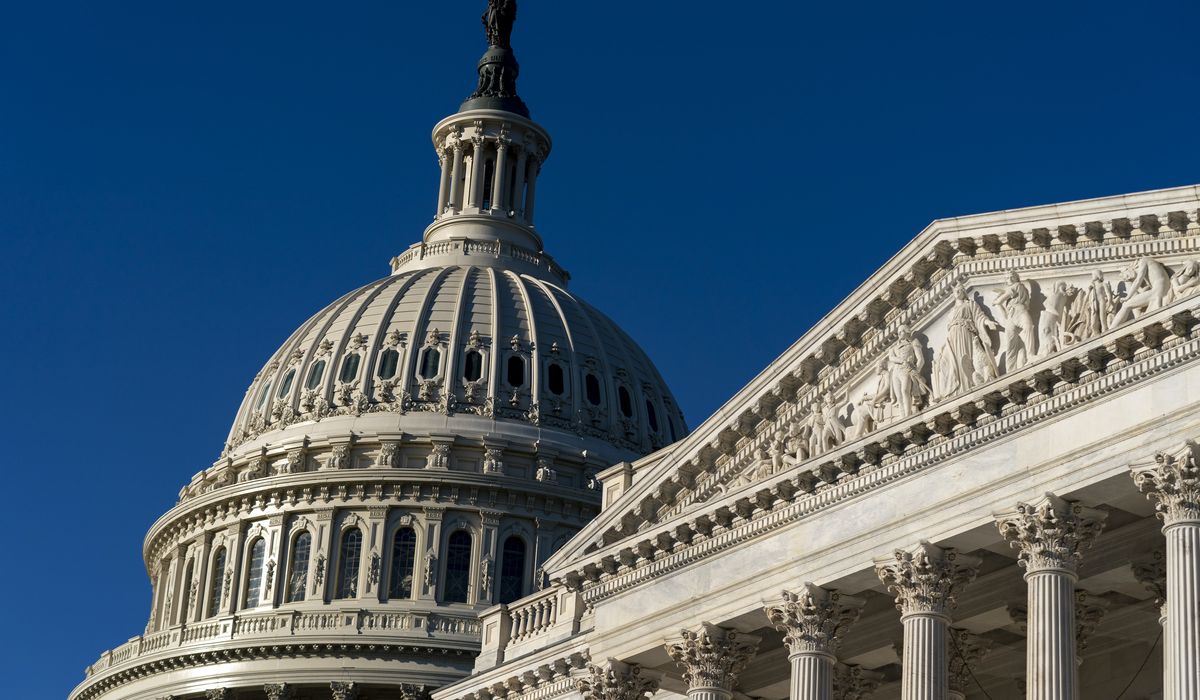
Critics often refer to U.S. lawmakers these days as the “do-nothing Congress” — more interested in going through the motions or indulging in political theater than producing productive and public-minded legislation.
Here’s the truth about that. This has been going on for a century.
The description “do-nothing Congress” dates back to 1922, when the phrase first appeared in the North American Review, cited as a nickname for the 67th Congress due to “a wave of public criticism and popular impatience.”
So wrote William Starr Myers — a journalist, Princeton University professor and historian of the day. The aforementioned and well-regarded publication, by the way, was founded in Boston in 1815.
But wait, there’s more. The lazybones description of lawmakers came into vogue once again over two decades later.
In 1948, the 80th Congress spent 11 sweltering days in mid-July wrangling over unfinished business amid then-President Harry S. Truman’s bid to be reelected.
Four days into that session, Truman gave a speech to Congress at 1:45 a.m., in which he urged GOP lawmakers in particular to live up to their pledges to improve health care and Social Security payments, among other things. They emerged with only two bills for the president to sign.
“Would you say it was a do-nothing session, Mr. President?” asked one reporter at a press conference in the aftermath, according to a description in the official U.S. Senate historic timeline.
“I would say it was a do-nothing session. I think that’s a good name for the 80th Congress,” Truman replied.
LOUSY RATINGS FOR THE DO-NOTHINGS
Meanwhile, only 13% of U.S. adults actually approve of the job Congress is doing, according to an Economist/YouGov poll of 1,500 U.S. adults conducted Oct. 9-12. Here are the findings, complete with partisan breakdown:
59% of U.S. adults disapprove of the way the U.S. Congress is handling its job; 77% of Republicans, 68% of independents and 41% of Democrats agree.
16% overall neither approve or disapprove of the job Congress is doing; 11% of Republicans, 13% of independents and 23% of Democrats agree.
13% approve of the job Congress is doing; 6% of Republicans, 8% of independents and 27% of Democrats agree.
12% are not sure how they feel about Congress; 7% of Republicans, 10% of independents and 8% of Democrats agree.
And one more thing. The poll also found that 42% of the respondents say Congress currently is doing “less than usual,” 26% are not sure about the issue, 24% say the accomplishment level is “about the same” while 9% say Congress is doing “more than usual.”
And who’s to blame for this record? The survey found that 42% blamed Democrats, 24% blamed Republicans and 32% say both parties are equally guilty.
MR. SNERDLEY HAS A TRIBUTE
James Golden — known to millions of fans as “Bo Snerdley,” executive producer of the late Rush Limbaugh’s remarkable radio show — has written a book about his experiences. It is a true tribute.
“Rush on the Radio” will be published by All Seasons Press on Nov. 23.
“The Rush Limbaugh Show, the highest rated radio show in history, spanned 33 years and changed the American political conversation. James Golden, aka ‘Bo Snerdley,’ was there from the beginning to the final, tearful episodes. As call screener, ‘Official Program Observer,’ and friend of Rush, Golden shares behind the scenes anecdotes that grew the massive audience of devoted listeners. In addition, James reveals insights about pivotal moments in the radio program’s evolution, and how they apply today,” the publisher said in advance notes.
“This book tells the story with candor, humor, and heart — for the many who knew the voice of Bo Snerdley but wondered about the man, and why Rush trusted him so much,” the publisher said.
Mr. Golden, by the way, is now an afternoon host for WABC-AM in New York City. And about the publisher. Kate Hartson and Louise Burke — both veterans in the field — launched All Seasons Press in June. They remain on task, and well focused.
“All Seasons Press intends to publish the best writers, politicians and pundits in the conservative movement. The company is open to welcoming those authors who are being attacked, bullied, banned from social media, and, in some cases, outright rejected by politically correct publishers,” the two say in their mission statement.
MR. YOUNGKIN HAS AN ANNOUNCEMENT
Former Gov. Terry McAuliffe of Virginia, a Democrat, and Republican rival Glenn Youngkin are neck and neck in the governor’s race — an important contest for both parties.
According to a Trafalgar Group poll of 1,095 U.S. voters conducted Oct. 11-13. Mr. McAuliffe weighs in with 47.5% of the vote, Mr. Youngkin has 48.4%.
The intense rivalry has sparked furious fundraising on the part of the Democratic Party, which has publicized high-profile support for Mr. McAuliffe from President Biden, former President Barack Obama, and first lady Jill Biden.
Mr. Youngkin, meanwhile, will make an imminent “major announcement,” according to his campaign.
“Political outsider, successful business leader, and Republican nominee for governor Glenn Youngkin will visit Fairfax County on Tuesday. There, he will highlight the epidemic of government abuse and failure in Virginia’s school system that has told parents they don’t matter and set Commonwealth children behind and lay out a vision to solve these problems to make Virginia schools worthy of our children and Virginia’s future,” the campaign advises.
More soon on this.
POLL DU JOUR
• 62% of U.S. adults think it is “very important” for the federal government to improve U.S. roads and bridges; 53% of Republicans and 70% of Democrats agree
• 51% say it is very important for the U.S. to make wastewater reusable in dry regions; 36% of Republicans and 74% of Democrats agree
• 48% say it’s very important for the U.S. to set stricter buildings standards to withstand storms, floods and wildfires; 31% of Republicans and 62% of Democrats agree
• 45% say it’s very important to provide broadband internet service to communities without it; 27% of Republicans and 60% of Democrats agree
• 39% say it’s very important to expand public transportation systems; 20% of Republicans and 54% of Democrats agree
• 24% say it’s very important to build more charging stations to increase use of electric vehicles; 9% of Republicans and 36% of Democrats agree
SOURCE: A Pew Research poll of 10,505 U.S. adults conducted Sept. 13-19; the poll included 4,915 Republicans and 5,199 Democrats and was released Oct. 14.
• Follow Jennifer Harper on Twitter @HarperBulletin.




